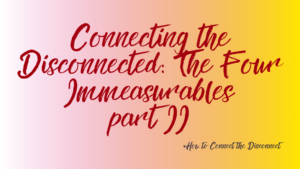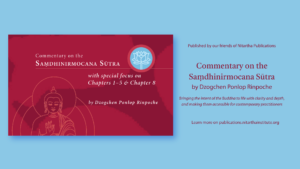[youtube]http://youtu.be/CRnJq5m31p4[/youtube]
How do habits become part of us? Rinpoche takes a humorous closer look at the habits we want to give up. Presented in the context of teaching “the four foundations of mindfulness” (body, feelings, mind and phenomena) at KTD Monastery in Woodstock, NY. April 2014
Last year Twitter followers were treated to several short teachings by Rinpoche on habits:
“Habituation: if we get used to things not being ok, nothing will ever be ok!”
“Even one second of mindfulness can interrupt very deep habits 🙂 ”
“We’re not born with the mindset to be glued to the TV: slowly, slowly we become habituated”
and . . .
“Big changes can’t happen without small changes.”
You are welcome to follow @ponlop on Twitter. Rinpoche isn’t always tweeting (he travels frequently to locations where Internet connectivity can be tricky) but you’re sure to learn something from @ponlop!





